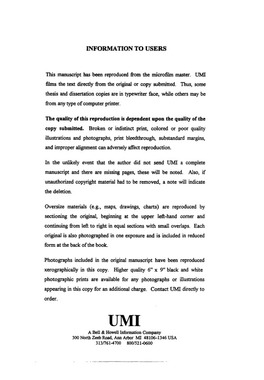| dc.contributor.author | Mills, Steven Curtis. | en_US |
| dc.date.accessioned | 2013-08-16T12:29:32Z | |
| dc.date.available | 2013-08-16T12:29:32Z | |
| dc.date.issued | 1997 | en_US |
| dc.identifier.uri | https://hdl.handle.net/11244/5434 | |
| dc.description.abstract | The findings of the study provided evidence that teacher perceptions about an ILS influenced implementation of the ILS. Highest levels of concern for respondents were at the awareness stage and second highest levels of concern were at the informational stage. The best ILS implementation practices included integration with classroom instruction, training in the use of an ILS, and the use of motivational strategies. Most of the math gain achieved by learners using the ILS was explainable by the amount of time learners spent using the ILS for instruction. | en_US |
| dc.description.abstract | To investigate the research questions posed by this study, several tasks were undertaken. A measure was developed that described the major components of implementation of ILS technology. Process data were collected that provided contextual variables of the implementation including teacher concerns about ILS technology, the operational patterns of teachers using ILS technology, and learner achievement using an ILS. These data were collected from 65 teacher questionnaires, 30 teacher interviews, and 608 learner gains reports from 4 elementary schools. | en_US |
| dc.description.abstract | Using an ILS to improve the teaching/learning process was more complex than earlier understood. Just because a teacher was an effective implementer of an ILS was no guarantee that learners realized higher achievement from the ILS. Without the necessary organizational support, the expectation for instructional technology to improve the teaching/learning process cannot be sustained. | en_US |
| dc.description.abstract | Change agents and stakeholders in the ILS implementation process should understand that implementation is a developmental process and that teachers' concerns influence the way in which they implement an ILS. | en_US |
| dc.description.abstract | Integrated learning systems (ILSs) provide a multi-year curriculum sequence of computer-based instruction controlled by a sophisticated management system. ILS implementation is better understood when the focus of implementation is shifted from the technology to the people who use the technology. When the emphasis of research is on what people actually do using an ILS, implementation becomes a function of user attitudes and instructional strategies in using the ILS. This study examined the concerns and the operational patterns of teachers implementing an ILS in elementary schools in a metropolitan school district. | en_US |
| dc.format.extent | xi, 203 leaves : | en_US |
| dc.subject | Computer-assisted instruction. | en_US |
| dc.subject | Education, Technology of. | en_US |
| dc.subject | Education, Elementary. | en_US |
| dc.subject | Education, Curriculum and Instruction. | en_US |
| dc.subject | Programmed instruction. | en_US |
| dc.title | Implementing integrated learning systems in elementary classrooms. | en_US |
| dc.type | Thesis | en_US |
| dc.thesis.degree | Ph.D. | en_US |
| dc.thesis.degreeDiscipline | Department of Educational Psychology | en_US |
| dc.note | Source: Dissertation Abstracts International, Volume: 58-02, Section: A, page: 0430. | en_US |
| ou.identifier | (UMI)AAI9721054 | en_US |
| ou.group | Jeannine Rainbolt College of Education::Department of Educational Psychology | |
